Introduction To Coconut Sugar And Coconut Palm Sugar
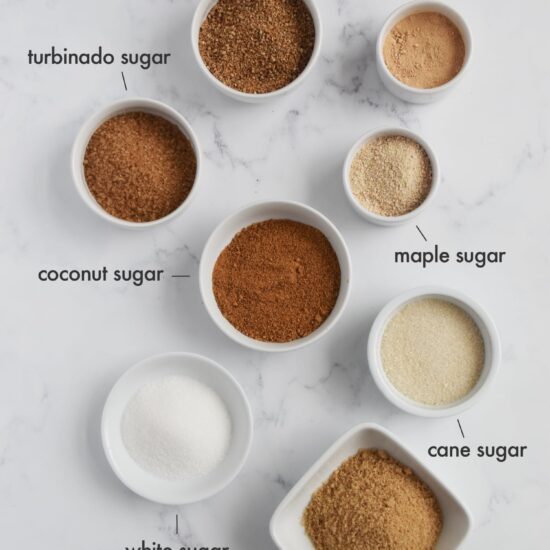
Coconut sugar and coconut palm sugar are natural sweeteners derived from the sap or sugary fluid of the coconut palm tree. They are often used as alternatives to refined sugars due to their perceived health benefits and lower glycemic index. Coconut sugar and coconut palm sugar are both known for their caramel-like flavor and can be used in a variety of culinary applications, including baking and cooking. In this article, we will explore the production processes, nutritional benefits, and health comparisons of coconut sugar and coconut palm sugar, as well as provide tips and recipes for incorporating these natural sweeteners into your favorite dishes.
A Brief Overview Of Coconut Sugar And Coconut Palm Sugar
Coconut sugar and coconut palm sugar are natural sweeteners derived from the sap or sugary fluid of the coconut palm tree. While coconut sugar and coconut palm sugar are often used interchangeably, they are slightly different. Coconut sugar is made from the sap of the coconut palm tree, while coconut palm sugar can be made from the sap of various palm trees. Both sugars have a caramel-like flavor and can be used as alternatives to refined sugars in various culinary applications. They are known for their lower glycemic index and perceived health benefits. Overall, coconut sugar and coconut palm sugar are popular choices for sweetening naturally.
Nutritional Benefits Of Using These Natural Sweeteners
Coconut sugar and coconut palm sugar have some nutritional benefits that set them apart from refined sugars. They contain minerals like iron, zinc, calcium, and potassium, which can support various bodily functions. While the amounts of these nutrients in coconut sugar and coconut palm sugar may not be substantial per serving, they still contribute to a more nutrient-dense alternative to regular table sugar. Additionally, these natural sweeteners have a lower glycemic index, meaning they have a milder impact on blood sugar levels compared to refined sugars. Overall, using coconut sugar and coconut palm sugar provides a slightly healthier option for satisfying sweet cravings.
Coconut Sugar: Production And Benefits
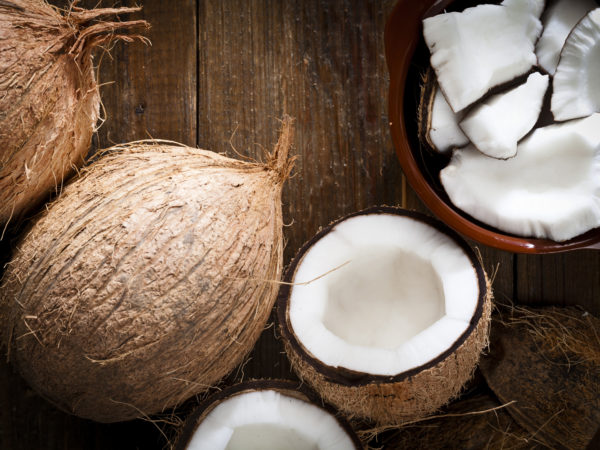
Coconut sugar is produced from the sap of coconut palm flowers. The process involves collecting the sap before it ferments, then boiling it until the water evaporates and a granulated sugar is formed. This natural sweetener retains some of the nutrients found in coconuts, such as potassium, iron, zinc, and calcium. It also contains small amounts of antioxidants and fiber. Coconut sugar has a caramel-like flavor, making it a popular choice for sweetening beverages, desserts, and baked goods. Its low glycemic index makes it a healthier alternative to refined sugars.
The Process Of Extracting And Producing Coconut Sugar
The process of extracting and producing coconut sugar begins with collecting the sap from coconut palm flowers. The sap is carefully harvested and transferred to a kettle for boiling. During this process, the water in the sap evaporates, leaving behind a concentrated syrup. The syrup is further stirred and dried until it forms a granulated sugar. This natural sweetener retains some of the nutrients found in coconuts, making it a healthier alternative to refined sugars. Its unique caramel-like flavor adds a delicious taste to various dishes and beverages.
Health Benefits And Uses Of Coconut Sugar In Cooking And Baking
Coconut sugar offers not only a delicious flavor but also numerous health benefits when used in cooking and baking. It contains essential minerals like potassium, iron, and zinc, which are important for overall health. Additionally, it has a lower glycemic index compared to regular sugar, meaning it causes a slower rise in blood sugar levels. This makes it a suitable sweetener for people with diabetes or those looking to manage their blood sugar levels. From sweetening baked goods to adding a touch of sweetness to sauces and marinades, coconut sugar can be a versatile and healthier alternative in various culinary creations.
Coconut Palm Sugar: Origins And Uses
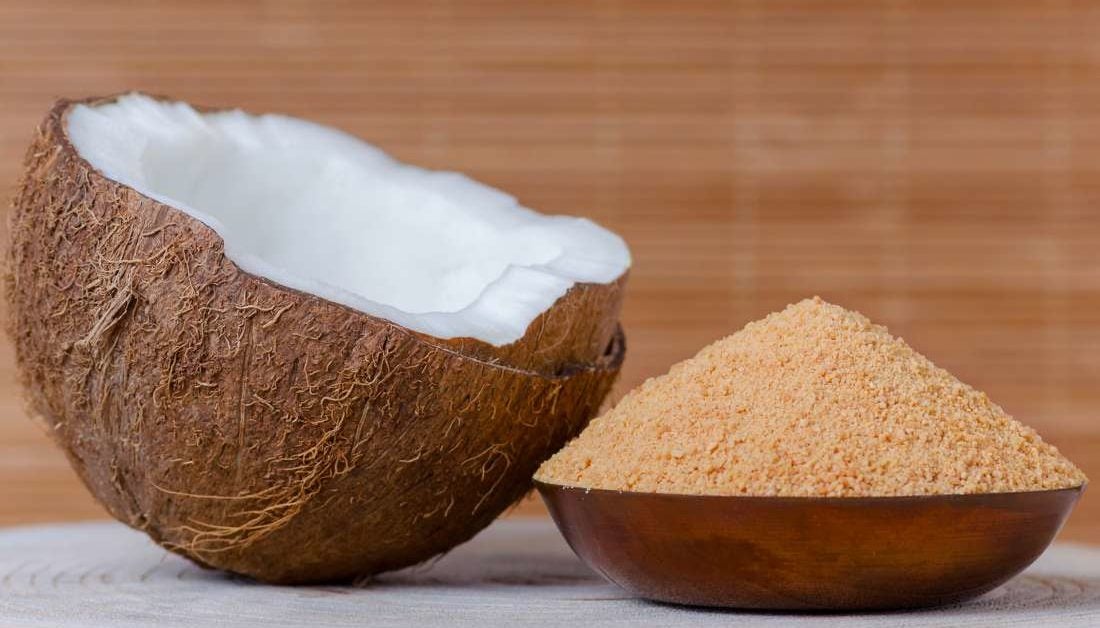
Coconut Palm Sugar, also known as palm sugar, is derived from the sap of the coconut palm tree. This natural sweetener has been used for centuries in Southeast Asian cuisine. The process of harvesting palm sugar involves extracting the sap from the flowering buds of the coconut palm tree, which is then boiled to evaporate the water content. Coconut palm sugar has a rich caramel-like flavor with a hint of coconut. It is commonly used in desserts, beverages, sauces, and marinades, adding a unique sweetness to dishes. Its versatility makes it a popular choice for both sweet and savory recipes.
The Origin And Harvesting Process Of Coconut Palm Sugar
Coconut Palm Sugar originates from the sap of the coconut palm tree. The harvesting process involves tapping the flowering buds of the coconut palm to extract the sweet sap. Skilled workers carefully collect the sap and transfer it to containers. The sap is then boiled to evaporate the water content, resulting in pure Coconut Palm Sugar. This traditional method ensures the preservation of the natural sweetness and caramel-like flavor of the sugar. The process is sustainable and does not harm the coconut palm tree, making Coconut Palm Sugar an environmentally friendly sweetener option.
Comparison Of Flavor Profile And Culinary Applications Of Coconut Palm Sugar
Coconut Palm Sugar offers a unique flavor profile that sets it apart from other sweeteners. It has a deep, rich caramel flavor with subtle notes of sweetness and a hint of smokiness. This distinct taste makes it a perfect choice for flavoring desserts, baked goods, and savory dishes. Its versatility allows for its use in various culinary applications such as sauces, dressings, marinades, and beverages. Whether sprinkled on top of oatmeal, added to a stir-fry, or used in a homemade BBQ sauce, Coconut Palm Sugar adds a delightful depth of flavor to any dish.
Health Comparison: Coconut Sugar Vs Coconut Palm Sugar

When comparing the health benefits of Coconut Sugar and Coconut Palm Sugar, there are some notable differences to consider. While both sweeteners are natural alternatives to refined sugars, Coconut Palm Sugar contains slightly more nutrients, including minerals like potassium, magnesium, and iron. However, it’s important to note that the differences in nutritional content are not significant enough to provide substantial health benefits. Both sweeteners have a similar impact on blood sugar levels and should still be consumed in moderation. Overall, the choice between Coconut Sugar and Coconut Palm Sugar comes down to personal preference and dietary needs.
Nutritional Differences And Similarities Between Coconut Sugar And Coconut Palm Sugar
Coconut Sugar and Coconut Palm Sugar have some nutritional differences and similarities. Both sweeteners are natural alternatives to refined sugars, but Coconut Palm Sugar contains slightly more nutrients. It is a good source of minerals such as potassium, magnesium, and iron. However, the differences in nutritional content are not significant enough to provide substantial health benefits. Both sweeteners have a similar impact on blood sugar levels, so they should still be consumed in moderation. Ultimately, the choice between Coconut Sugar and Coconut Palm Sugar comes down to personal preference and dietary needs.
Impact On Blood Sugar Levels And Potential Health Benefits
Coconut sugar and coconut palm sugar have a similar impact on blood sugar levels compared to regular table sugar. While they do contain some nutrients, such as potassium and magnesium, the differences in nutritional content are not significant enough to provide substantial health benefits. However, these natural sweeteners are still a better alternative to refined sugars due to their lower glycemic index. They may also offer a slightly milder flavor compared to regular sugar, making them a preferred choice for those looking to reduce their sugar intake.
Cooking With Coconut Sugar And Coconut Palm Sugar
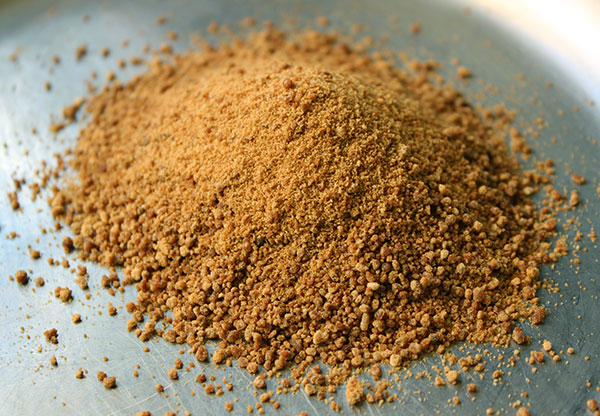
When it comes to cooking with coconut sugar and coconut palm sugar, the possibilities are endless. These natural sweeteners can be used in a variety of dishes, from sweet treats to savory recipes. They can be a great substitute for refined sugars and can add a unique flavor to your culinary creations.
Some popular uses for coconut sugar and coconut palm sugar include adding them to baked goods like cookies and cakes, sweetening sauces and dressings, and sprinkling them on top of fruits or yogurt. These natural sweeteners can also be used in marinades and glazes, giving your savory dishes a touch of sweetness.
When using coconut sugar and coconut palm sugar in your recipes, it is important to keep in mind that they have a slightly different flavor and sweetness level compared to regular sugar. It may require some experimentation to find the right amount to use in your dishes.
Overall, cooking with coconut sugar and coconut palm sugar can be a tasty and healthier alternative to traditional sweeteners. Experiment with these natural options in your favorite recipes to add a touch of sweetness and enjoy the unique flavors they bring to your dishes.
Recipes And Tips For Using Coconut Sugar And Coconut Palm Sugar In Various Dishes
There are endless possibilities for using coconut sugar and coconut palm sugar in your culinary creations. Here are some recipes and tips to inspire you:
- Baked Goods: Use coconut sugar or coconut palm sugar as a substitute for refined sugar in your favorite cookies, cakes, and muffins. The natural sweetness and caramel-like flavor will add a unique twist to your treats.
- Sweet Sauces and Dressings: Sprinkle coconut sugar or coconut palm sugar into homemade sauces and dressings to balance out the flavors and add a touch of sweetness. Try it in barbecue sauce, stir-fry sauces, or vinaigrettes.
- Fruit Toppings: Sprinkle coconut sugar or coconut palm sugar on top of fresh fruits, such as sliced bananas or berries, for an extra burst of sweetness. It pairs well with the natural juiciness of fruits.
- Marinades and Glazes: Create flavorful marinades and glazes by combining coconut sugar or coconut palm sugar with your favorite herbs, spices, and liquids. Use it to marinate meats, seafood, or tofu before grilling or baking.
- Beverages: Dissolve coconut sugar or coconut palm sugar in hot or cold beverages, such as tea or coffee, for a natural sweetener option. It can also be used to sweeten smoothies or homemade lemonade.
Remember to adjust the amount of coconut sugar or coconut palm sugar according to your taste preferences, as they have a slightly different flavor and sweetness level compared to regular sugar. Enjoy experimenting with these natural sweeteners in your favorite dishes!
Substitution Guide For Incorporating These Natural Sweeteners Into Your Recipes
When using coconut sugar or coconut palm sugar as substitutes in your recipes, it’s important to keep in mind their unique flavor and sweetness levels. Here is a simple substitution guide to help you incorporate these natural sweeteners into your dishes:
- For every 1 cup of white sugar, you can replace it with 1 cup of coconut sugar or coconut palm sugar.
- If you prefer a milder sweetness, you can start by using 3/4 cup of coconut sugar or coconut palm sugar for every 1 cup of white sugar.
- Adjust the recipe to taste, as coconut sugar and coconut palm sugar have a slightly different flavor profile.
- Keep in mind that the texture and moisture content may vary when using these natural sweeteners, so make adjustments as needed.
Experiment and have fun exploring the possibilities of using coconut sugar and coconut palm sugar in your favorite recipes!
Conclusion
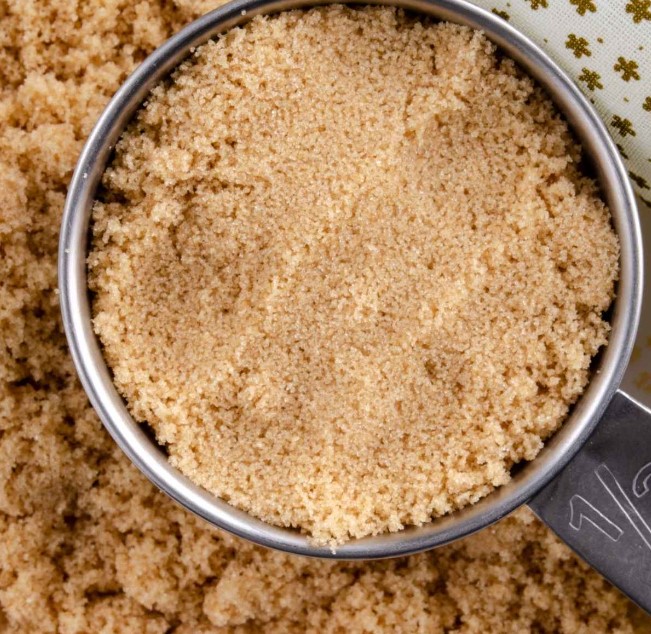
In conclusion, coconut sugar and coconut palm sugar are both natural sweeteners that offer a healthier alternative to refined sugar. They provide a range of nutritional benefits, including vitamins, minerals, and antioxidants. While coconut sugar is derived from the sap of coconut palms, coconut palm sugar is made from the crystallized nectar of the coconut blossom. Both sugars have a rich flavor profile and can be used in various recipes, from baked goods to savory dishes. When substituting them for white sugar, it’s important to adjust the quantities to achieve the desired level of sweetness. Incorporating these natural sweeteners into your diet can be a delicious way to satisfy your sweet tooth while keeping your health in mind.
Summary Of Key Points Comparing Coconut Sugar And Coconut Palm Sugar
Coconut sugar and coconut palm sugar are both natural sweeteners that offer healthier alternatives to refined sugar. They provide various nutritional benefits, including vitamins, minerals, and antioxidants. Coconut sugar is derived from the sap of coconut palms, while coconut palm sugar is made from the crystallized nectar of the coconut blossom. Both sugars have rich flavor profiles and can be used in a range of recipes. When substituting for white sugar, it’s important to adjust the quantities for desired sweetness. Incorporating these natural sweeteners into your diet can satisfy your sweet tooth while considering your health.
Final Thoughts On Choosing The Right Natural Sweetener For Your Lifestyle
When it comes to choosing the right natural sweetener for your lifestyle, both coconut sugar and coconut palm sugar offer healthier alternatives to refined sugar. Consider your taste preferences and nutritional needs when making your decision. Coconut sugar is derived from the sap of coconut palms and has a rich flavor profile, while coconut palm sugar is made from the crystallized nectar of the coconut blossom and has a milder taste. Both sugars provide various vitamins, minerals, and antioxidants. It’s important to note that while these sugars are natural, they should still be consumed in moderation as part of a balanced diet. Ultimately, the choice between coconut sugar and coconut palm sugar depends on your personal preferences and dietary goals.
FAQ About Coconut Sugar Vs Coconut Palm Sugar: Sweetening Naturally
Q: What is the difference between coconut sugar and coconut palm sugar?
A: Coconut sugar and coconut palm sugar are the same; both are derived from the sap of coconut palm trees. The terms are often used interchangeably.
Q: Are coconut sugar and coconut palm sugar the same as regular white sugar?
A: No, coconut sugar and coconut palm sugar are natural sweeteners that come from a different source compared to regular white sugar, which is typically extracted from sugarcane or sugar beets. They also contain more nutrients and a lower glycemic index.
Q: How are coconut sugar and coconut palm sugar made?
A: Both sugars are made by extracting the sap from coconut palm tree blossoms, dehydrating the sap to create a granular form of sugar. The process is similar to how maple syrup is made.
Q: Are coconut sugar and coconut palm sugar healthier than regular sugar?
A: Yes, coconut sugar and coconut palm sugar contain more nutrients like potassium, iron, zinc, and vitamins compared to regular sugar. They also have a lower glycemic index, which means they have a slower impact on blood sugar levels.
Q: Can coconut sugar and coconut palm sugar be used as a 1:1 substitute for regular sugar in recipes?
A: Yes, coconut sugar and coconut palm sugar can generally be used as a 1:1 substitute for regular sugar in most recipes. However, they may slightly alter the taste and color of the final product due to their distinct flavors.
Q: Are coconut sugar and coconut palm sugar vegan-friendly?
A: Yes, both coconut sugar and coconut palm sugar are vegan-friendly as they are plant-based products and do not involve the use of animal-derived ingredients in their processing.
Q: Where can I buy coconut sugar and coconut palm sugar?
A: Coconut sugar and coconut palm sugar are widely available in health food stores, grocery stores, and online retailers specializing in natural and organic products.

Kostas Mediterranean is a family-owned Greek restaurant located in North Vancouver. Our passion for bringing the authentic flavors of Greece to the local community has been the driving force behind our establishment. We take pride in offering a warm and welcoming atmosphere where guests can experience the true essence of Greek hospitality. Our journey began with Kostas, whose culinary skills and love for Greek cuisine inspired the creation of the restaurant. With a desire to share his family recipes and traditions, Kostas set out to create a dining experience that captures the spirit of Greece. The result is a menu that showcases a delightful blend of traditional and modern Greek dishes prepared with the finest and freshest ingredients.